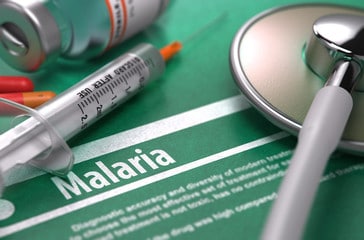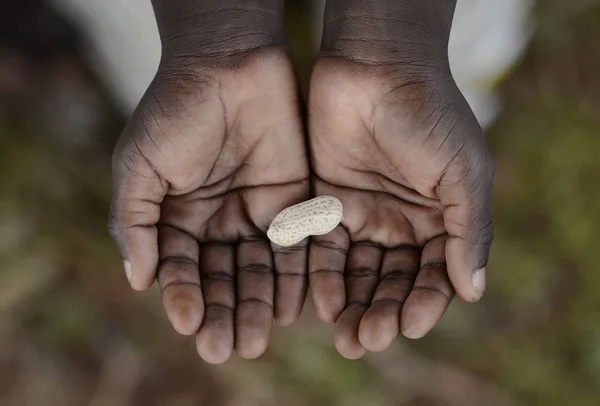Malaria is one of the leading killer diseases in Nigeria. In this article, we’ve taken enough time to discuss what the disease is, its common symptoms, types, complications, treatment, as well as preventive measures to take to shield yourself against the life-threatening disease.

WHAT IS MALARIA?
Malaria is a serious disease spread through the bite of an infected Anopheles mosquito. One thing about infected mosquitoes is that they usually carry the malaria-causing Plasmodium parasite, and if you allow such mosquito to bite you, the parasite will be released into your bloodstream.
Upon entering your body, these parasites will then travel to your liver, mature for a while, and after that, they will migrate to your bloodstream and start attacking the red blood cells in your body. In less than 72 hours of the attack, you will begin to experience some of the common symptoms of malaria, such as fever, chills, headaches, nausea, to name but a few. [1]
FACTS ABOUT MALARIA IN NIGERIA
- Every year, over 200 million cases of malaria are recorded annually worldwide, with most occurrences in sub-Saharan Africa.
- With 25%, Nigeria is among the 5 countries that accounted for nearly half of all malaria cases worldwide in 2017, closely followed by the Democratic Republic of the Congo (11%), Mozambique (5%), India (4%) and Uganda (4%).
- Nigeria has the highest burden of malaria in the world, with more than 300,000 child death recorded annually.
- Pregnant women and children under 5 years are the most susceptible group to malaria, majorly because of their weaker immune system.
- Malaria accounts for over 25%, 30%, and 11% of infant mortality (children under 1 year), childhood mortality (children under 5 years), and maternal mortality (pregnant and nursing mothers), respectively. [2] [3]
WHAT ARE THE TYPES OF MALARIA?
There are myriads of species of the malaria parasite that affect humans, some of which include the following:
| S/N | Malaria specie | Dominant region |
| 1. | P. vivax | Asia and Latin America |
| 2. | P. ovale | Africa and the Pacific islands |
| 3. | P. malariae | Worldwide |
| 4. | P. knowlesi | Southeast Asia |
| 5. | P. falciparum | Tropical and subtropical areas |
SYMPTOMS OF MALARIA (MILD)
The most common symptoms of mild malaria are –
- fever
- chills,
- headaches
- nausea
- vomiting
- general weakness
- body aches
- cold
- shivering
- sweating
- diarrhea
- vomiting
- muscle pain
In rare cases, malaria may become more severe or complicated, and may be accompanied with the following symptoms:
Severe anemia (as a result of the destruction of red blood cells)
- kidney failure
- seizures
- bloody stools
- unconsciousness
- confusion
- cardiovascular collapse
- coma
- low blood sugar
- difficulty breathing
- brain damage from swelling. [4]
MALARIA IN NIGERIA: DIAGNOSIS
Malaria is usually diagnosed by a microscopic examination of blood films or through antigen-based rapid diagnostic tests (RDT). Only a healthcare professional can help you determine if you have malaria.
WHY IS MALARIA HARMFUL?
Malaria, when not treated quickly or properly, can trigger some life-threatening complications, including cerebral malaria (brain damage or swelling that may further result in seizures or coma), breathing problems (having excess fluid in the lungs), Organ failure (damage to the kidney or liver), anemia (damaged red blood cells), and even low blood sugar (reduced blood sugar level, which may further result in coma or death).
CAUSES OF MALARIA IN NIGERIA
As earlier explained, malaria is majorly caused by “Anopheles mosquito.” If this mosquito becomes infected and bites you, you will also be infected, and sooner or later, you will begin to experience some of the aforementioned malaria symptoms. [5]
Some of the common reasons why people die of malaria in Nigeria are said to include – self-medication, lack of awareness, residing in an unhealthy environment, lack of safety measures, inadequate governmental support, self-medication, and usage of substandard/fake antimalarial drugs.
MALARIA TREATMENT IN NIGERIA
Once a person is diagnosed of malaria, the physician in charge will recommend certain antimalarial drugs that can help eliminate the malaria-causing Plasmodium parasite from the bloodstream. The type and dosage of an antimalarial drug to be used depends largely on several factors, including
(i) the exact species of parasite identified; (ii)the age of the patient (iii) the severity of symptoms
The most common malaria drugs in Nigeria for treating malaria include;
- chloroquine (Aralen),
- mefloquine (Lariam),
- doxycycline (Vibramycin, Oracea, Adoxa, Atridox),
- quinine (Qualaquin),
- Coartem [6]
IS THERE A MALARIA VACCINE IN NIGERIA?
Firstly, there is a malaria vaccine that can be used to prevent malaria in infants called RTS, S, also commercially known as Mosquirix. However, it is not available in Nigeria.
Although there is no malaria vaccine in Nigeria yet, the vaccine is being tested in other African countries like Kenya, Malawi and Ghana.
PREVENTING MALARIA IN NIGERIA
No medication is 100% effective for malaria, and for this reason, preventing mosquito bites is very crucial to reduce your risk of malaria. Here are some effective ways to prevent malaria:
- Spray mosquito repellent on your clothes and avoid wearing clothes that expose your skin
- Do not wear short sleeve shirts and trousers, especially when you are about going to bed
- Be sure to always sleep under an authentic insecticide-treated mosquito net
- Always shot the doors and windows to your room against mosquitoes
- Keep your surroundings clean as much as you can
- Spray quality insecticide in your room before sleeping
- Expectant mothers and young kids [especially those under five years] should avoid residing near malaria-prone areas
- Pregnant/expectant women should opt for Intermittent Preventive Treatment in pregnancy [IPTp]
- In case you wear clothes that expose some part of your skin, be sure to apply insect repellent to the entire area
- If you want to visit a new destination, get some antimalarial drugs before leaving home, so as not to buy counterfeit drugs in the foreign land.
- If you are doing some activities that warrant you staying outside till evening, wear long pants and long-sleeve shirts.
- Eliminate all potential mosquito breeding spots; get rid of standing water in your surroundings, always cover any container that has water inside, cover your drainage regularly, and be sure it is flowing.
- Trim all the nearby plants and bushes regularly.
- If you are a malaria-prone person, you can make use of malaria prophylactic.
- If you must keep stagnant water, then use mineral oil or
- Kerosene so as to prevent mosquitoes and other insects from laying eggs
Perhaps you still become infected with malaria, please AVOID SELF-MEDICATION; contact your physician as soon as possible. Malaria is one of the most common diseases in Nigeria and should be taken seriously.
ALSO READ:
Collins Nwokolo is a human physiologist, writer and health enthusiast. He loves writing helpful articles on health and fitness, which he enjoys sharing with everyone.








